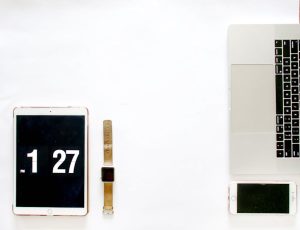Okay, so you’re thinking about getting a mobile app made, right? And, I bet, one of the first things that pops into your head, like, right after “what will it do?” is probably “how long does it take to develop a mobile app?” It’s a question we hear a lot, actually. And it’s a good one, naturally, because time, it is, after all, money for most folks. You’ve got plans, you know, and you want to see them happen, and ideally, not next year but sooner.
The thing about getting a definitive answer for how long it takes to develop a mobile app is, well, it’s a bit like asking how long it takes to build a house. You know, you could be talking about a small cabin, or a huge mansion with a swimming pool and a bowling alley. Both are houses, right? But the time frames are, shall we say, a bit different. So, it really does depend on a whole bunch of things. What it is you want your app to actually, um, do. How many bells and whistles you’re planning to stick on it. And, what kind of experience you want people to have when they use it. All that kind of stuff, it really, really plays into the clock ticking. It’s not just a simple matter of starting and then finishing. There’s a whole lot in the middle.
There’s no magic number, unfortunately, that you can just pull out and say, “Yep, that’s it.” What you’re aiming for with your app idea, that’s where the main calculation for the timeframe comes from. It starts with the idea, and then it kind of grows from there, naturally getting more involved.
What Stuff Makes the Time Go Up or Down for App Building?
So, if you’re wondering how long does it take to develop a mobile app, it’s a good idea to think about what exactly makes that clock tick faster or slower. There are quite a few ingredients in this recipe, you know, that really mix things up. Knowing these things can help you, like, get a more realistic picture in your head.
First off, there’s the sheer number of things your app is supposed to actually accomplish. A super simple app that just, say, shows you the weather or tells you a fun fact when you tap a button? That’s going to be way quicker to put together. It doesn’t have too many moving parts.
But if you start adding things, like letting people create accounts, or maybe chat with each other, or perhaps even buy stuff right there in the app? Well, each one of those additions, it’s like adding another room to that house we talked about. Each new piece of capability, it needs to be built and connected, and also tested.
Then you gotta think about how it looks and feels. A basic, plain sort of design, with standard buttons and fonts, that’s one thing. It’s perfectly functional. But if you want a really custom look, with special animations and unique branding colors, and a specific way things move around the screen, that takes more time. A lot more. It means custom design work.
And don’t forget about what’s behind the scenes. This is the stuff users don’t see but it’s super important. Things like where your app gets its information from, or where it stores all the user data. Is it talking to other systems? That backend stuff, it can get pretty complicated sometimes, and it eats up a good chunk of the schedule.
Also, are you planning for your app to work on iPhones, or Android phones, or maybe both of them? Building for just one is usually faster than building for two separate systems. Each platform has its own way of doing things, you see, so it’s often like building two slightly different versions of the same app. This is something that often gets underestimated.
The team you pick to build it, they matter a whole lot too. A small team might take a bit longer than a big one, just because there are fewer hands on deck, naturally. But a really experienced team, even if it’s smaller, can sometimes move things along quicker and smoother. Like a good company doing mobile app development Houston, they probably have systems in place.
And then there’s the whole, what do you call it, “project management” side of things. Keeping everyone on track, making sure things are talking to each other. It’s not just about the coding; it’s about making sure the whole operation moves forward without too many bumps in the road, which happens often.
A Look at How Long Different Kinds of Apps Might Take, Generally Speaking
So, giving you a number, for how long it takes to develop a mobile app, it’s hard. But we can talk about general categories, you know, to give you some kind of idea. This isn’t, like, a promise, but more of a common experience, for what these things generally run.
For something super simple, like an app with just a few screens, maybe it shows a catalog or a basic calculator, with not much data moving around? You’re usually looking at something in the range of, say, two to four months. That’s if everything goes pretty smoothly. It’s like a small starter home, really. Not too many frills.
Then you get into the medium-sized apps. These are apps that let you log in, maybe store some basic info, connect with friends, or do some simple transactions. Think like a basic social media app, or a simple ordering system for a local cafe. For those, it’s pretty common to see six to nine months.
Now, if you want something really big, something with lots of moving pieces, like an app that tracks your location in real-time, or a full-blown e-commerce store with user profiles and recommendation engines, or a complex game? That’s where you’re starting to talk about nine months, maybe a year, or even a year and a half. These are the mansions, remember. There’s just so much to build and connect and test, it’s kinda crazy.
And, you know, if you’re building for both iOS and Android, add a bit more time to those estimates, too. It’s rarely just double the time, but it’s certainly more than just adding, like, a week or two. Each version needs its own work.
These are just general guides, of course. Your particular project might, you know, fall outside these normal bounds. But it helps to, like, frame your expectations a little bit, for what’s ahead.
The Steps in App Making, and Where the Time Goes
When you break down how long does it take to develop a mobile app, it’s actually made up of several big stages. Each one of these steps, it takes its own chunk of time, naturally. Understanding them helps you see where the hours and days are actually going.
It all starts with the idea, right? But then you have to, like, really figure it out. This is the “discovery and planning” phase. Here, you define what the app will do, who it’s for, and what problems it solves. This can take a few weeks, typically, because it sets the whole direction. Getting this right is very important.
Then comes the design work. This is where the app starts to get its look and feel. People call it UI/UX design. It involves sketching out screens, figuring out how users will move through the app, and making it look good. This part can take anywhere from a month to several months, depending on how fancy you want it to be.
After the design is generally locked down, then the actual “building” part starts. This is where the coders, you know, write all the code that makes your app do stuff. This is often the longest phase. For those medium apps, this might be three to six months all by itself. It’s a lot of typing and thinking, and often redoing.
Once the code is written, it’s definitely not finished. Oh no. Next comes the testing phase. You need to check for bugs, make sure everything works like it’s supposed to, and that it doesn’t crash. This part, it takes time, usually weeks, maybe a month or two. You often find stuff you didn’t expect to.
Finally, after all that, you get to launch the app. This involves getting it ready for the app stores, submitting it, and waiting for it to be approved. This isn’t usually a long part of the process itself, but it’s the final hurdle. This is usually just a few days or weeks.
But don’t forget, even after it’s launched, there’s always going to be maintenance and updates. Apps are not “one and done” projects. They need looking after, fixing, and new stuff added over time. So, the “how long” question, it almost never truly ends.
Okay, So What Can You Do to Speed Things Up (A Bit)?
Alright, so if you’re feeling a bit daunted by the timeframes for how long it takes to develop a mobile app, don’t totally despair. There are some things you can do, you know, to try and keep things moving along. It’s not magic, but it helps.
First off, be super clear about what your app needs to do right from the start. Like, really clear. If you keep changing your mind about core features, or what it should look like, that just adds time. Every time you change something big, it means going back to earlier steps, naturally.
Consider starting small. You don’t have to put absolutely every single feature you ever dreamed of into the very first version of your app. Think about what’s absolutely necessary for people to get value from it. You can always add more stuff later. This is called an MVP, a minimum viable product.
Choosing the right partner, like a company that does mobile app development Houston, that really matters. A good, experienced team can often spot problems before they become big headaches. They know the ropes, which just saves time in the long run. They know what to look for.
And, when the team building your app asks for your feedback, try to give it to them quickly. If they’re waiting around for you to approve designs or test something, that just makes everything slow down. Being responsive, it really helps the whole project keep its momentum. It’s a team effort.
Also, be ready to, like, trust the process a bit. Sometimes things take longer than you expect, but it’s often for a good reason, like making sure the app is stable and works well. Rushing things too much, it can often lead to more problems later, which then take even longer to fix. So, a little bit of patience goes a long way.
Why It’s Not a One-Size-Fits-All Answer, Really
At the end of the day, the answer to how long does it take to develop a mobile app remains, you know, quite varied. There are just too many pieces to the puzzle, as we’ve talked about, for a simple, single number to cover everything. It’s like asking how long a piece of string is without seeing the string. You just can’t really do it.
What’s important, I think, is to go into the whole thing with realistic expectations. Understand that there are different stages, and each one needs its own time and attention. Planning is a big part of it, for sure, and so is having a good team working on it with you.
Don’t let the potential timeframe scare you off, though. Having a solid app idea and a good plan to bring it to life, that’s what really counts. And with good communication and a clear idea of what you want, you can definitely make progress, and generally see your app come to life in a sensible timeframe. It might not be tomorrow, but it won’t be never either, naturally. It just needs careful thought and steady work.
FAQ: How Long Does It Take to Develop a Mobile App
Q1: So, what’s the quickest an app can be built, like, seriously?
A: For something super basic, with just a few functions and a simple look, you might see it done in, say, two to four months. But that’s usually for really straightforward stuff, like an information-only app, not something complex.
Q2: Does it take longer to build an app for both iPhones and Android phones?
A: Generally, yes, it does take more time. Building for two separate systems means doing a lot of the design and coding work for each one. It’s not double the time, but it definitely adds a significant chunk.
Q3: What part of making an app usually takes the longest amount of time?
A: The actual “building” or coding part, where all the features are put together, often consumes the most time. It’s where the main functionality is constructed and integrated, which is a big job.
Q4: Can I pay more money to make my app get built faster?
A: Sometimes, yes, to a certain extent. You might be able to get a bigger team working on it, which can speed things up. But there are limits; some things just need a certain amount of time to be done properly, no matter how many people are on it. Rushing too much can lead to problems later.
Q5: What’s the biggest reason an app project might run over its original time estimate?
A: One of the main reasons projects take longer than planned is “scope creep.” That’s when new features or changes get added throughout the development process. Each new thing needs to be designed, coded, and tested, which just stretches out the schedule.










